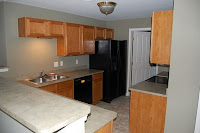I’ve been doing a lot of REO (Real Estate Owned) properties for about two years and I encounter many misconceptions by consumers – at least from my personal experiences in dealing with bank-owned (foreclosure) properties.
First, the bank will take anything to dump a home. This is absolutely not true in most cases. (Of course, the borderline tear down is the exception.) If you’re offer is at 80% or less of the list price it will likely be rejected outright. If you’re asking for seller contributions towards closing costs, you’d better bump that price up a bit, too.
While banks don’t want to hang onto these properties, they’re just like you and I – they want the best price that the market will bear, based on condition, amenities and the like. Banks price homes in different ways, but they usually get at least two Realtor® evaluations (called Broker Price Opinions, or BPOs), and sometimes a full appraisal, too. When they list a property at a certain price, they’re fairly confident in that value.
Second, if you’re putting in an offer on a house that hasn’t been on the market before, you’d better go in close to full price for the first few weeks. Some Asset Managers will not take less than close to that amount for the first 2-4 weeks. Prices typically get reduced monthly, based on the listing agent’s Monthly Status Report. Asset Managers pay careful attention to local market trends (housing values, unemployment rates, etc.) when deciding upon a pricing strategy and the amount of the reductions.
Third, most banks have already priced the home for its condition. Sure, all of the appliances are gone, and maybe some light fixtures, too. It could have a few holes in the wallboard or carpet that is badly stained. That’s been rolled into the original pricing. If you’re on the edge with what you can afford, don’t expect the bank to bend over backwards for you to get that extra few thousand dollars to meet your pre-approval price point.
Remember, that may have been what happened to the prior owners who just lost the house – they became over-extended. As one Asset manager told me in an email that recently accompanied an offer rejection, “
I can't help if they do love the house, they absolutely need to purchase something they can afford and this one they cannot, sorry.” Ouch!
More discussion in later posts, but remember that you buy these homes ‘as-is’, so be sure to get inspections done and carefully consider what you are trying to buy. Expect to pay a licensed plumber to de-winterize the home to check out the plumbing (around $100) and then to re-winterize it (another $200). This is over and above the cost of the inspection itself.
If you have questions about both the benefits and pitfalls of buying a foreclosure property, feel free to contact me.
